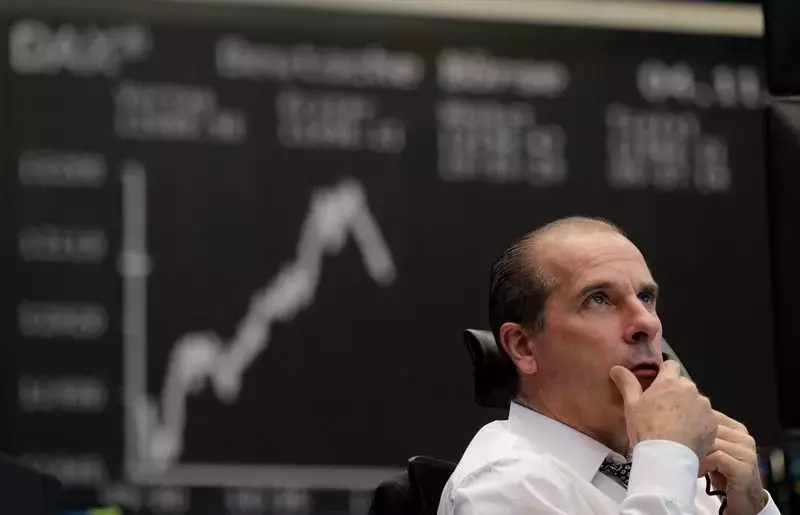
The European STOXX 600 index displayed indecision on Tuesday, as gains in industrial and financial services sectors counterbalanced losses in healthcare stocks. Market participants awaited key inflation data from across Europe later in the day. The index recovered from early declines to stabilize at 513.28 points, marking its highest level in three weeks. Financial services led with a 0.9% increase, driven by a significant boost in Partners Group following an upgrade from UBS. Retailers also saw positive movement, with UK's Next enhancing its annual profit forecast for the fourth time in six months. Industrial goods and services benefited from Kion Group’s collaboration with Nvidia and Accenture to optimize supply chains using AI technologies. Conversely, healthcare stocks declined, with Novo Nordisk and AstraZeneca posting losses.
Inflation reports and geopolitical uncertainties played crucial roles in shaping market sentiments. French consumer prices rose less than expected in December, while Swiss inflation fell, suggesting potential interest rate cuts by the Swiss National Bank. Despite recent volatility, Deutsche Bank expressed optimism about European equities due to improving macroeconomic conditions and anticipated stimulus measures from China. However, rumors surrounding U.S. President-elect Trump’s tariff strategy added uncertainty, illustrating how market narratives can influence asset flows.
Sectoral Performance Highlights Market Resilience
On Tuesday, the European markets showcased resilience despite mixed sectoral performances. The STOXX 600 managed to recover from initial losses and reached its highest point in three weeks, standing at 513.28 points. Financial services emerged as a strong performer, gaining 0.9%, largely due to a near 5% surge in Partners Group after UBS upgraded its rating to "buy". Retailers also performed well, with Next advancing 2.7% after raising its annual profit outlook for the fourth time within six months. Additionally, industrial goods and services saw a modest gain of 0.3%, bolstered by Kion Group’s 9.8% rise following its partnership with Nvidia and Accenture to enhance supply chain efficiency through AI technology. Volvo contributed positively with a 4.7% jump.
However, not all sectors fared equally well. Healthcare stocks experienced a downturn, falling 0.4%. Major players like Novo Nordisk and AstraZeneca recorded losses of 2.3% and 1.2%, respectively. This divergence in sectoral performance highlighted the complexity of market dynamics. The positive movements in industrials and financials underscored investor confidence in these areas, while the decline in healthcare indicated ongoing concerns or shifts in investment priorities. Overall, the market demonstrated a resilient yet cautious stance, balancing gains against selective losses.
Market Sentiment Influenced by Economic Indicators and Rumors
The European market sentiment was significantly influenced by economic indicators and speculative news. Investors eagerly awaited the euro zone inflation reading, which could provide insights into the European Central Bank’s interest rate policy. French consumer prices increased less than anticipated in December, and Swiss inflation fell further, fueling expectations for additional interest rate cuts by the Swiss National Bank. These economic signals were pivotal in shaping investor expectations and market behavior. Meanwhile, rumors regarding U.S. President-elect Trump’s tariff strategy introduced uncertainty, despite his denial of such plans. Analysts noted that such rumors often mislead investors and cause temporary disruptions in asset flows, exemplified by the previous day’s market reactions.
Despite the volatility, there were signs of optimism. Deutsche Bank recently became overweight on European equities, attributing this stance to improving political stability, favorable macroeconomic conditions, and the potential for Chinese stimulus measures in 2025. The bank’s positive outlook reflected broader confidence in the region’s economic recovery. Notably, some individual stocks faced challenges; Sodexo dropped 8.4% after missing first-quarter organic revenue forecasts. This mix of positive and negative developments illustrated the dynamic nature of European markets, where economic indicators and speculative news continuously shape investor perceptions and market trends.
